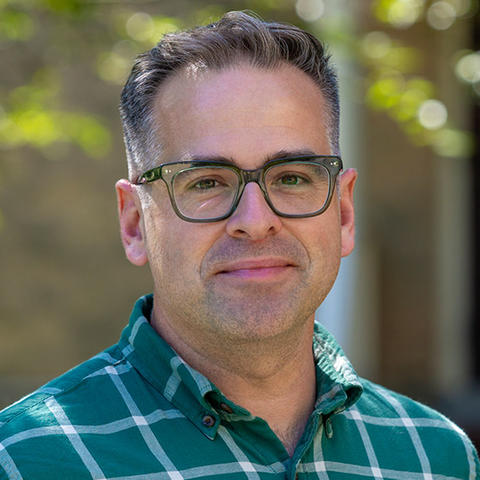Summer Centered: Ghislaine Niyodusenga '27 Teaches Computer Literacy to Ghana's Young People

Photo by Patrick Montero.
Details
Niyodusenga worked at the Dalun Information, Communication, and Technology Center, a critical space for young people in nearby communities to gather and learn important technological skills.
For Ghislaine Niyodusenga ’27, returning home to Africa for the summer provided an opportunity to support the next generation of learners. In the rural region of Dalun, Ghana, she spent June and July teaching basic computer skills to students ranging in age from 8 to 16.
“I’m from Rwanda, so I wanted to come back to Africa after my first year to give back to the community,” says the prospective mathematics major who aims to enter the world of finance post-College. “I believe that education is a core part of change and advancing in life. So it was very rewarding for me to work with the young students who represent the future generation of Africans.”
Niyodusenga’s summer experience was made possible through the Bi-College Lagim Tehi Tuma Fellowship, a 12-year-old partnership program between Haverford’s Center for Peace and Global Citizenship and Bryn Mawr College’s Leadership, Innovation, and Liberal Arts Center. Lagim Tehi Tuma, which translates to “working together” in the Dagbani language, is led by Professor of Education Alice Lesnick and places fellows with community organizations and NGOs in Dalun that foster cross-cultural dialogue and collaborative study.
In Ghana, Niyodusenga worked at the Dalun Information, Communication, and Technology Center, a critical space for young people in nearby communities to gather and learn important technological skills, with colleagues from Bryn Mawr, Lincoln University, and the University for Development Studies in Ghana. Without reliable access to computers in their schools, Niyodusenga says, some students can only learn such skills in theory, so she walked them through the basics, like how to turn the machines on and off, create desktop folders, and handle a mouse and other peripherals.
As part of her internship, Niyodusenga also pursued a personal inquiry project that explores the evolution of Dalun’s culture to her own in Rwanda. Her home country has undergone radical changes following the tragic mid-1990s genocide there. Since then, its economy has become one of the fastest-growing in the world, and the country has also established itself as one of Africa’s leaders in information communication and technology, according to the United Nations. While the project is still evolving and she is still determining how she’d like to present it, Niyodusenga says she has been intrigued by the differences she’s experienced in Ghana, nearly 3,500 miles from her home, particularly in family structures.
“From my perspective, the family is more nuclear. It’s your parents and your siblings,” she says. “But here it stretches into extended cousins. They have much stronger family connections.”
Beyond reconnecting her with the African food she sorely missed during her first year at Haverford, Niyodusenga’s fellowship also gave her an experience she’s been longing for since high school: a chance to see what it’s like to go to work every day.
“I worked five days a week. I woke up, went to work, and came home,” she says. “I really enjoyed that part of the experience as well as teaching and seeing the smiles of the students. I really love being with children.”




